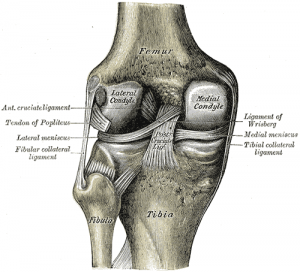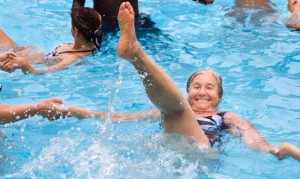 The U.S. population is aging as the baby boomers begin reaching their golden years. This means our nation is facing more people with the declining function, memory and cognition associated with aging. [Read more…]
The U.S. population is aging as the baby boomers begin reaching their golden years. This means our nation is facing more people with the declining function, memory and cognition associated with aging. [Read more…]
New evidence on volunteering later in life
Reforms needed in end-of-life care
 Over the next 15 years, the number of people in the U.S. aged 65 and older will nearly double to more than 72 million. As the baby boomer generation continues to age, our society and our health care system will need to address the increasing number of people requiring health care services and end-of-life care. [Read more…]
Over the next 15 years, the number of people in the U.S. aged 65 and older will nearly double to more than 72 million. As the baby boomer generation continues to age, our society and our health care system will need to address the increasing number of people requiring health care services and end-of-life care. [Read more…]
Review: Knee surgery for cartilage tears
 The most common knee injury today is a torn meniscus, which is a rip in the cartilage that cushions the knee joint. There are two groups of people who commonly suffer this injury: athletes who twist their knees and older people who are more likely to have degenerative tears as cartilage becomes weaker with age.
The most common knee injury today is a torn meniscus, which is a rip in the cartilage that cushions the knee joint. There are two groups of people who commonly suffer this injury: athletes who twist their knees and older people who are more likely to have degenerative tears as cartilage becomes weaker with age.
Gardening as a treatment for dementia
 Researchers believe nearly 4 million Americans over age 60 suffer from some form of dementia. Their symptoms may include memory loss, impaired judgment and reasoning, loss of communication skills, agitation and paranoia. [Read more…]
Researchers believe nearly 4 million Americans over age 60 suffer from some form of dementia. Their symptoms may include memory loss, impaired judgment and reasoning, loss of communication skills, agitation and paranoia. [Read more…]
Exercise and the brain
 We know that exercise yields health benefits and lowers the risk of disease. But there is new evidence that exercising as a young adult can improve your cognitive skills later in life. [Read more…]
We know that exercise yields health benefits and lowers the risk of disease. But there is new evidence that exercising as a young adult can improve your cognitive skills later in life. [Read more…]
Should we screen everyone for dementia?
 More than 5 million adults in the U.S. suffer from Alzheimer’s disease, and even more suffer from other dementias that result in memory loss and speech difficulties, and interfere with thinking and plans skills.
More than 5 million adults in the U.S. suffer from Alzheimer’s disease, and even more suffer from other dementias that result in memory loss and speech difficulties, and interfere with thinking and plans skills.
Most of the time, dementia is diagnosed when a caregiver such as a doctor notices symptoms in a patient, or when a caregiver suspects something is wrong. Experts believe that leaves a vast majority of dementia cases in the primary setting undiagnosed. [Read more…]
The problem of dental care among the elderly
 Healthy mouths and teeth are an important component in our overall health that enables us to eat healthy foods and keep bacteria at bay. Now there’s new information that older adults – especially those in long-term care facilities – are not getting the oral health care they need. [Read more…]
Healthy mouths and teeth are an important component in our overall health that enables us to eat healthy foods and keep bacteria at bay. Now there’s new information that older adults – especially those in long-term care facilities – are not getting the oral health care they need. [Read more…]
Does diet impact your brain?
The link between depression and dementia
 A disproportionate number of older adults suffer from depression, according to data collected by the National Institute of Mental Health. It is estimated that millions of senior citizens suffer from dementia. And older adults commit suicide at higher rates compared to other age groups. [Read more…]
A disproportionate number of older adults suffer from depression, according to data collected by the National Institute of Mental Health. It is estimated that millions of senior citizens suffer from dementia. And older adults commit suicide at higher rates compared to other age groups. [Read more…]
Dementia and antipsychotic medicine: A new review
 One in three senior citizens suffer from Alzheimer’s disease or dementia when they die, according to the Alzheimer’s Association. Often patients with dementia have behavioral problems such as agitation, aggression, anxiety and depression. [Read more…]
One in three senior citizens suffer from Alzheimer’s disease or dementia when they die, according to the Alzheimer’s Association. Often patients with dementia have behavioral problems such as agitation, aggression, anxiety and depression. [Read more…]





